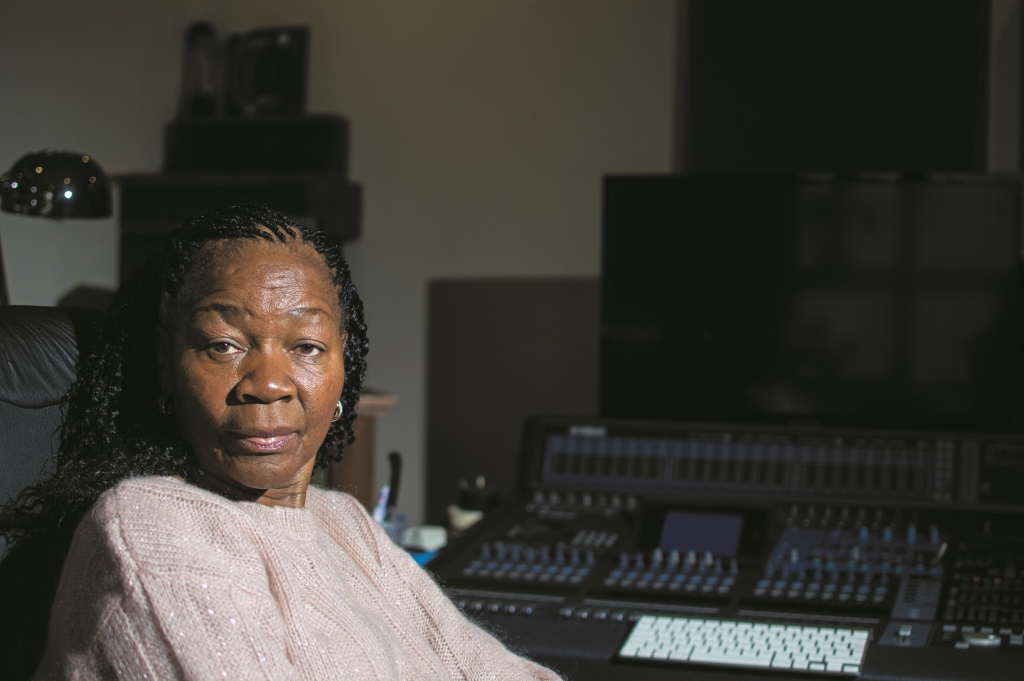Letta Mbulu sings with soul, the soul of Africa.
Born in Soweto where people turned to music and dance to escape the dark days of apartheid in South Africa, her early influences were the songs of hope, joy and determination echoing through the snaking alleys of her township.
As a child, in 1959, she became a part of King Kong, the acclaimed South African jazz-influenced musical, which opened in Johannesburg at the University of the Witwatersrand.
“I learned at a young age what it takes to be a professional artiste and what it takes to develop ideas into a performance,” says Mbulu when we meet her in her Johannesburg home.
South African singing legend Miriam Makeba and jazz musician Thandi Klaasen were part of the cast of King Kong and her mentors throughout the production. While still in her early 20s, her musician-boyfriend and now husband, the hugely-talented Caiphus Semenya, invited her to join him in the United States (US).
Loading...
Reluctant to travel far from home, she arrived in a cold and snowy America, welcomed by Semenya, Makeba and South African trumpeter Hugh Masekela, living in exile in the US.
“I kept searching for the New York with all the glitz and glamor but I experienced a New York which was very depressing, it was snowing, very cold and I asked ‘when are we getting to New York’?” says Mbulu.
She had left behind a South African summer with family, friends and festivities, and was now confronted by a cold New York. She had to get over it.
“I went to see Ms Makeba [for her performance], Bill Cosby opened for her and I was blown away, which inspired me to perform and we went to the Village Gate to watch Celia Cruz.”
Cruz was her inspiration to perform in her native language, at the famed Village Gate.
“Miles Davis came to give me a compliment after the performance where he asked me if I had taken coke, which I misheard as Colgate; he said things which offended me at the time, but I realized later they were compliments,” says Mbulu now.
Mbulu’s career gathered momentum when John Levy became her manager, and she collaborated with American artistes such as David Axelrod and Cannonball Adderley. Her association with Quincy Jones led to opportunities in featuring in popular soundtracks.
Jones was producer for A&M Records when Mbulu was recording There’s Music In The Air. It was on a trip to West Africa that she received a request from Jones for her song to be included in the movie Roots.
“Roots was a movie about black American history, when I did that song [Oluwa: Many Rains Ago], it came deep from another place, it was wonderful,” she says.
The success of Roots brought more recognition for Mbulu as she followed up with soundtracks for The Colour Purple and A Warm December.
While on a world tour for a performance with Harry Belafonte, actor Sydney Poitier was in the audience. After the show, he asked her to perform one of her songs Bahleli Bonke eTilongweni for A Warm December.
“The song was about apartheid political prisoners, this theme didn’t fit in with a club scene as depicted in the movie,” says Mbulu.
The club scene was a sequence created to allow Poitier’s character to connect with his African love interest. Despite her dissatisfaction with the lack of sensitivity to the subject matter of the song, Mbulu appreciated the opportunity and exposure. Later, Micheal Jackson considered Mbulu for his song Liberian Girl which had a similar theme as A Warm December.
Mbulu recalls being intrigued by the King of Pop.
“Michael had a very tiny voice, was extremely shy; his first words were, ‘Are you from Africa, yes you don’t look African’. I asked him how Africans look,” says Mbulu.
The Western perception of Africa has been a topic of debate for decades and is an issue Mbulu feels can only be changed by Africans.
“African artistry becomes limited to build bridges between melodies which take music to the next level, it’s important to go to school to free yourself as an artiste,” she says.
She emphasizes the importance of education to develop talent.
“In South Africa, we learn classical music that’s great, however it limits us in terms of African instruments which have notes which can’t be written in our contemporary musical education.”
Mbulu laments the disinterest of the government in innovating arts and culture education, and aligning it with the economy.
“When we talk to our leaders, they hear it, but can’t see it. They say people are already dancing so what’s the point, not seeing that it could be sustaining.”
Mbulu and Semenya returned to South Africa in 1991 after being in exile for over two decades. She continues to produce music, is working on an album and says she couldn’t have asked for more.
“I have a good husband, grandkids that I adore; my life is good, I thank my creator, my ancestors and my people,” she humbly submits, as she awaits a warm December in South Africa.
Loading...
